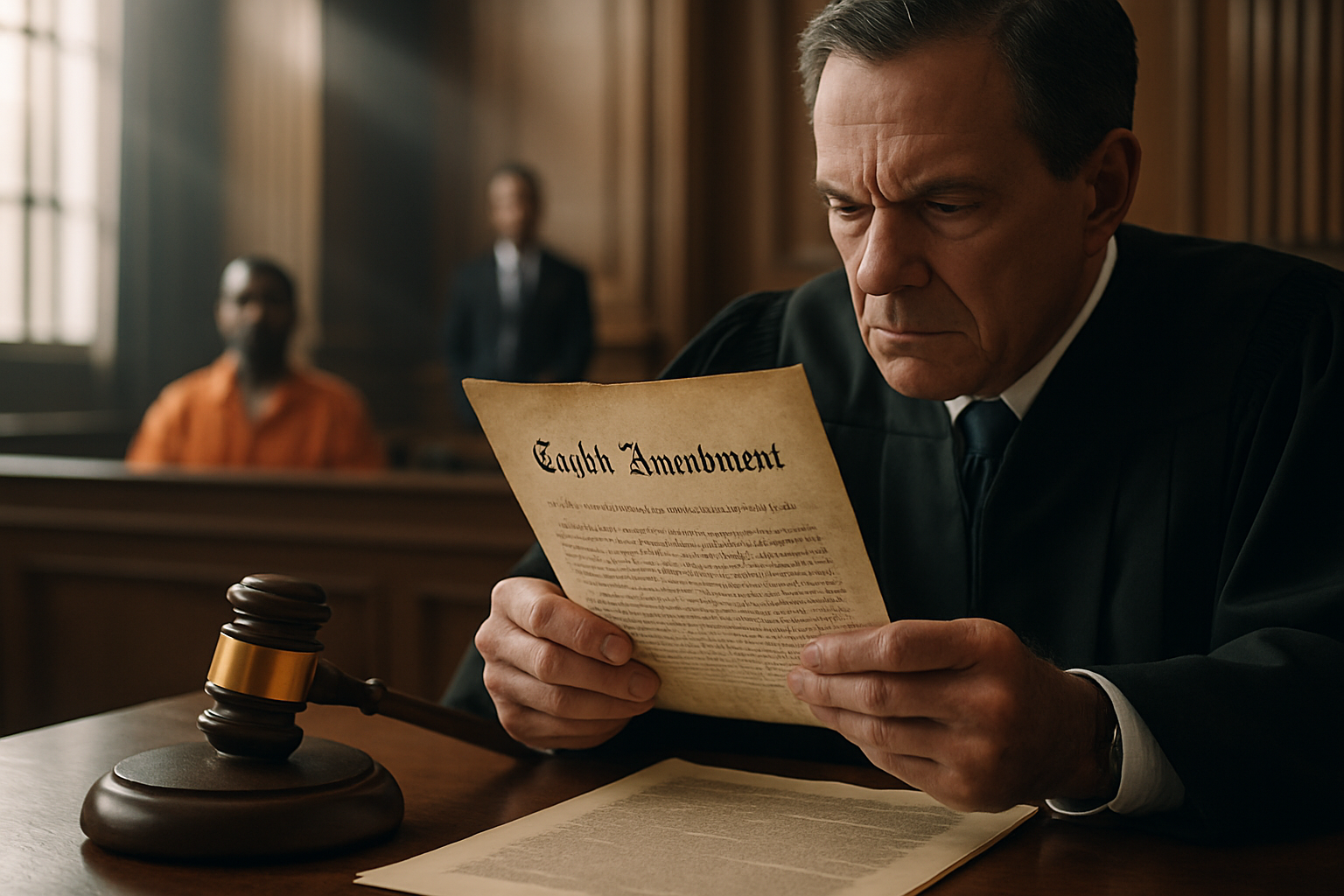The Intricacies of the Eighth Amendment: Cruel and Unusual Punishment in the Modern Era
Introduction: The Eighth Amendment of the United States Constitution, prohibiting cruel and unusual punishment, is a cornerstone of the American justice system. Yet, its interpretation and application have evolved significantly over time. This article delves into the historical context, recent legal developments, and societal implications of this critical constitutional provision.

Historical Context of the Eighth Amendment
The Eighth Amendment was adopted as part of the Bill of Rights in 1791. Its origins can be traced back to the English Bill of Rights of 1689, which condemned cruel and unusual punishments. The framers of the U.S. Constitution included this provision to prevent the government from imposing unduly harsh penalties on individuals convicted of crimes.
Evolution of the Eighth Amendment Interpretation
Over the centuries, the interpretation of the Eighth Amendment has evolved significantly. Initially, it was applied only to punishments that were barbaric or involved torture. However, in the 20th century, the U.S. Supreme Court expanded its scope to include punishments that are disproportionate to the crime committed. This shift has led to numerous debates and legal battles over what constitutes “cruel and unusual” punishment.
Recent Legal Developments
In recent years, the Supreme Court has made several landmark rulings related to the Eighth Amendment. For instance, in the 2010 case of Graham v. Florida, the Court ruled that life sentences without parole for juveniles convicted of non-homicide offenses are unconstitutional. This decision underscored the evolving standards of decency that mark the progress of a maturing society.
The Eighth Amendment and Capital Punishment
One of the most contentious issues related to the Eighth Amendment is capital punishment. While the Supreme Court has upheld the constitutionality of the death penalty, it has also imposed certain restrictions. For example, in the 2002 case of Atkins v. Virginia, the Court ruled that executing individuals with intellectual disabilities violates the Eighth Amendment.
Societal Implications of the Eighth Amendment
The interpretation and application of the Eighth Amendment have profound societal implications. They shape the nature of the U.S. criminal justice system, influencing sentencing policies and prison conditions. Moreover, they reflect societal attitudes towards punishment and rehabilitation, raising fundamental questions about justice, humanity, and the role of the state.
In conclusion, the Eighth Amendment, while seemingly straightforward, is a complex and evolving area of constitutional law. Its interpretation continues to shape the American justice system and societal attitudes towards punishment. As societal norms and values evolve, so too will the understanding and application of this critical constitutional provision.





